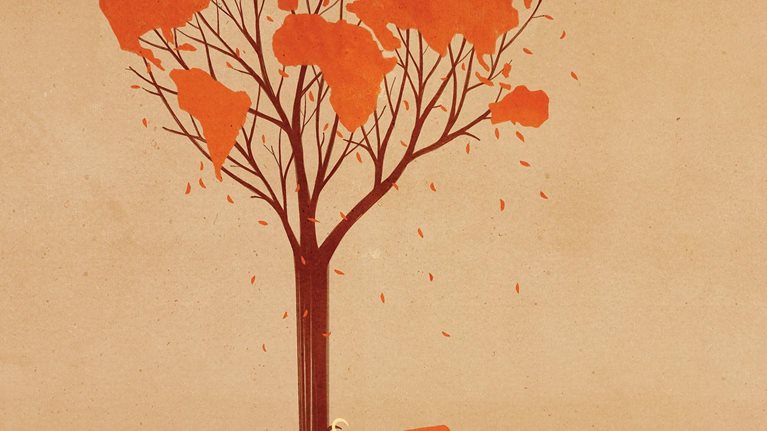Imagine being 15 years from the traditional retirement age and deciding to start your own company. Or deciding to enter a completely different industry—at age 60. Or spending your twenties deferring further study to find out what really drives you. All of these are options in this age of longevity, according to London Business School professor of management practice Lynda Gratton, who argues that the trajectory of our lives—professionally and personally—remains trapped in a mind-set that applied when life spans were much shorter. In this interview with McKinsey’s Rik Kirkland, Gratton draws on her new book, The 100-Year Life: Living and Working in an Age of Longevity, to explain why lives are moving from two stages to three and what that means not only for individuals but for corporations and government as well. An edited transcript of their conversation follows.
Interview transcript
As a professor, one of the things I’m always thinking about is what is the next big question? And it seems to me that the questions that most of us are really thinking about right now are what happens if we live to a hundred years? What happens if our kids live to a hundred years?
One of the most fundamental facts about living to a hundred is if you live to a hundred and you save at a normal savings rate and you want to retire on 50 percent of your final income, you will be working until you’re in your late 70s, early 80s. That’s just a fact. No government is going to tell you that because they’re not going to be reelected, but it’s true.
Three life scenarios
We ran through the lives of three people. One we call Jack, who died when he was 70. One we call Jimmy, who’s going to live until he’s 80 to 90 and is currently in his 40s; he’ll probably live longer than that. And one called Jane, who’s now 20 years old. We expect that she’ll live to at least a hundred.
Why would Jane immediately jump into something? Wouldn’t it be more sensible for her to take a look at her options and then start to make choices? We’re already seeing this. It’s no surprise that young people are getting married older. They’re buying houses older. They’re having children older. They’re starting their careers later. This all makes total sense, so we expect to see a new stage of exploration emerging.
There are two really important consequences of that. The first is that when new stages emerge, transitions become really important. The interesting thing about a three-stage life is that there are only two stages: there’s a transition from education to work, then work to retirement. And secondly, and this is profound: Jimmy was in lockstep. Everybody was educated at the same time as Jimmy. He’s the one who died in his 70s. Everybody went to school. Everybody retired at the same age. Jane is not in lockstep. If you think about each person designing their own life, they’re not going to do it at the same time as each other.
When we think about the implications for policy and for corporations, the end of lockstep is one of them. Within corporations, it’s been easy for us to imagine that if you know somebody’s age, you know their stage. But if you disconnect age from stage, suddenly you could be at university when you’re 60. You could be doing a portfolio when you’re 20. You could be exploring when you’re 70 or when you’re 17.
The end of the lockstep life
One of the interesting things about living long lives is that you have more stages, and more stages mean more transitions. When lockstep goes, you’re making the transition often on your own. But transitions are also to do with networks. In fact, it turns out that networks are really important for long lives. All sorts of different types of networks. But the network that helps you transition is what sociologists would call “weak ties”: people who are different from you, whom you don’t know very well.
Because the problem with transition is that the people who know you best and who are most like you do not want you to change. If you change, then they’re thinking, “Well, hang on—I have to change as well.” If you think about, “Who could I be? Who could my future self be?” the glimpses of the future self are not going to come from the people that you know well. They’re going to come from the associates, this huge crowd of diverse people you know.

The art and science of well-being at work
What longer lives means for business
So what does this mean for corporations? The most obvious is, don’t retire people at 60. It’s the craziest idea there is. Stop doing it. It’s going to cause massive problems for the future. Let people work as long as they can, and that means that they have to be cognitively healthy.
Number two, realize that people aren’t going to have that three-stage career. They will want to hop out at times. They’ll want to rejuvenate. They’ll want to learn a new skill. They’ll want to go on sabbaticals. Academics go on sabbaticals. Why can’t consultants? Think more creatively about career paths.
One of the questions we asked ourselves is where is the change going to happen? Are governments going to change? No, they have to be elected. Most of this stuff is awful, which is why governments, if you notice, are not changing the pension age very much.
Is it going to be corporations? Yes, but probably very slowly. Change will happen at the level of the individual. We will see—and I can’t wait to see it, we’re already seeing it—lots and lots of experimentation as people, individually, in their communities, and in their families, begin to build lives that are sustainable for the long term. We are watching that with enormous interest, and we invite people to our website, 100yearlife.com, to share their stories.
For more about The 100-Year Life: Living and Working in an Age of Longevity, visit the book’s publisher’s page.


